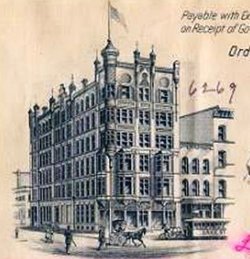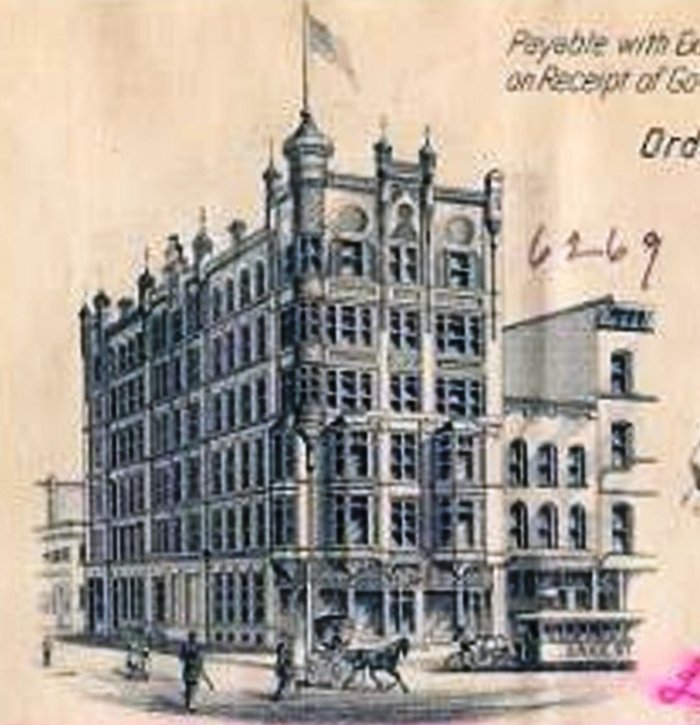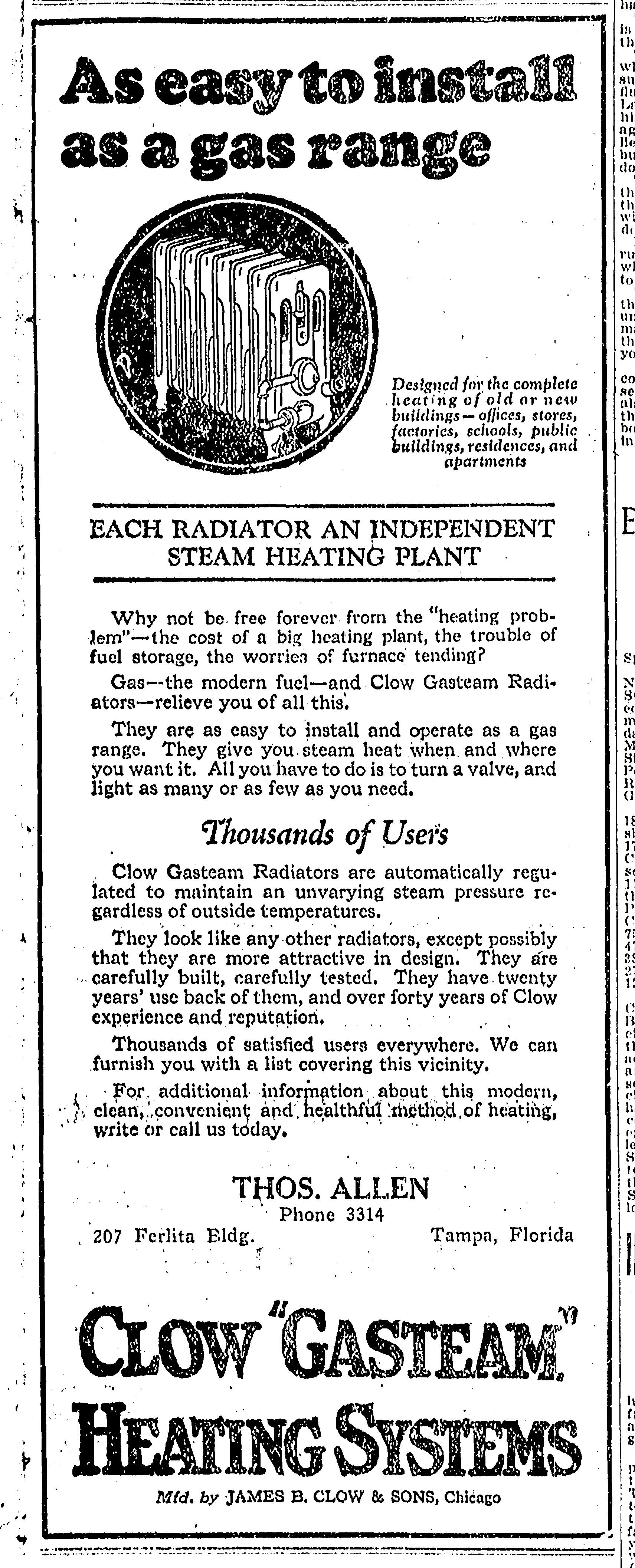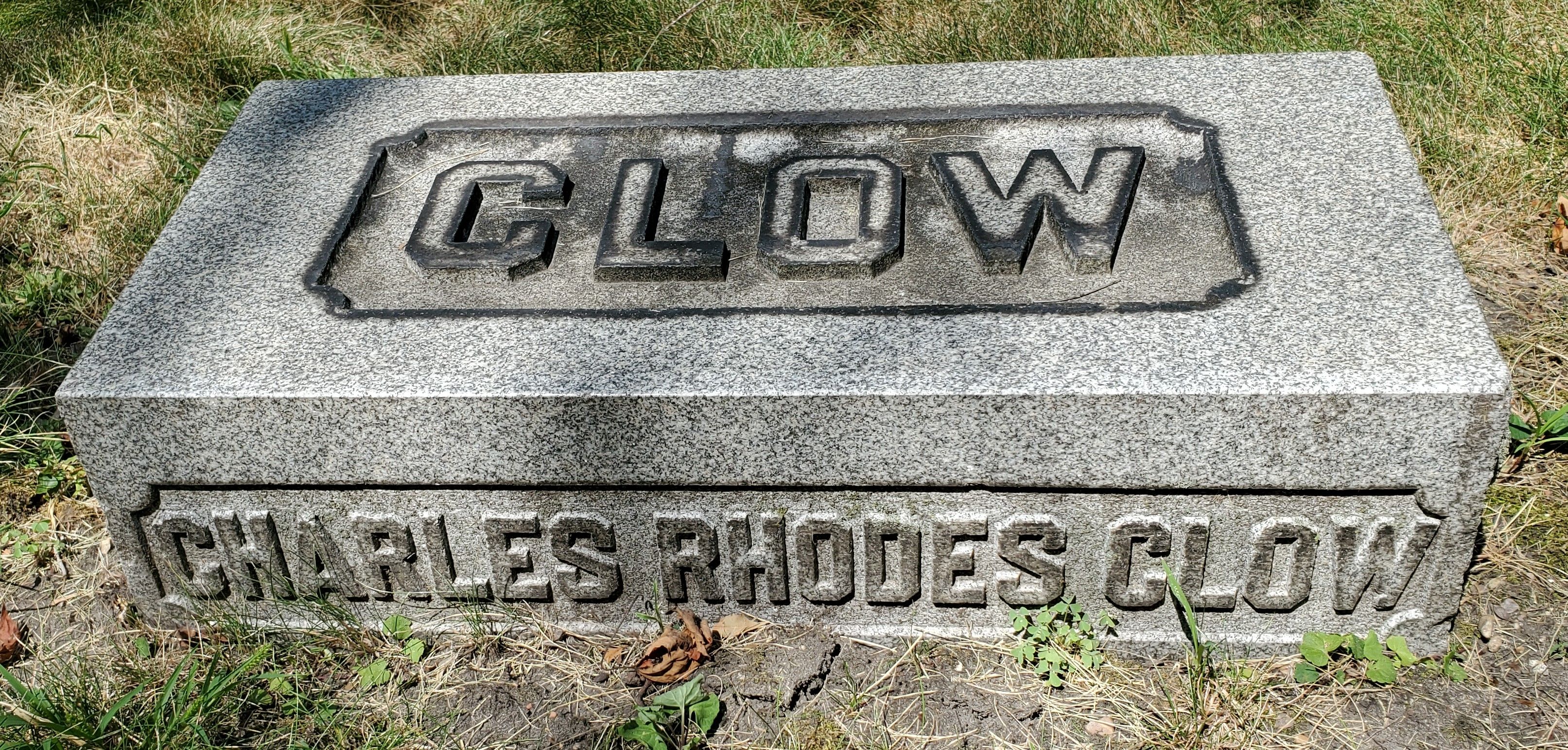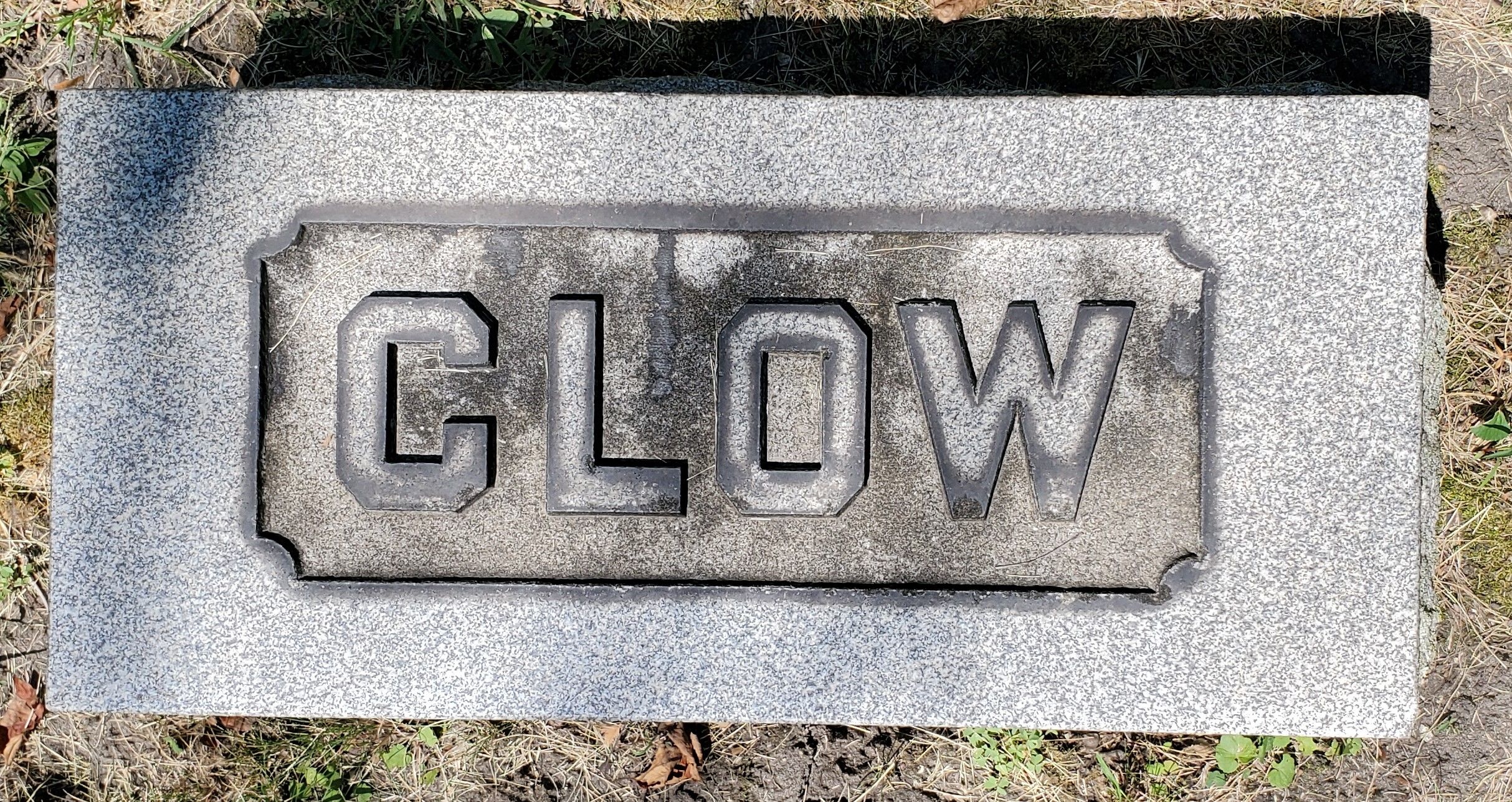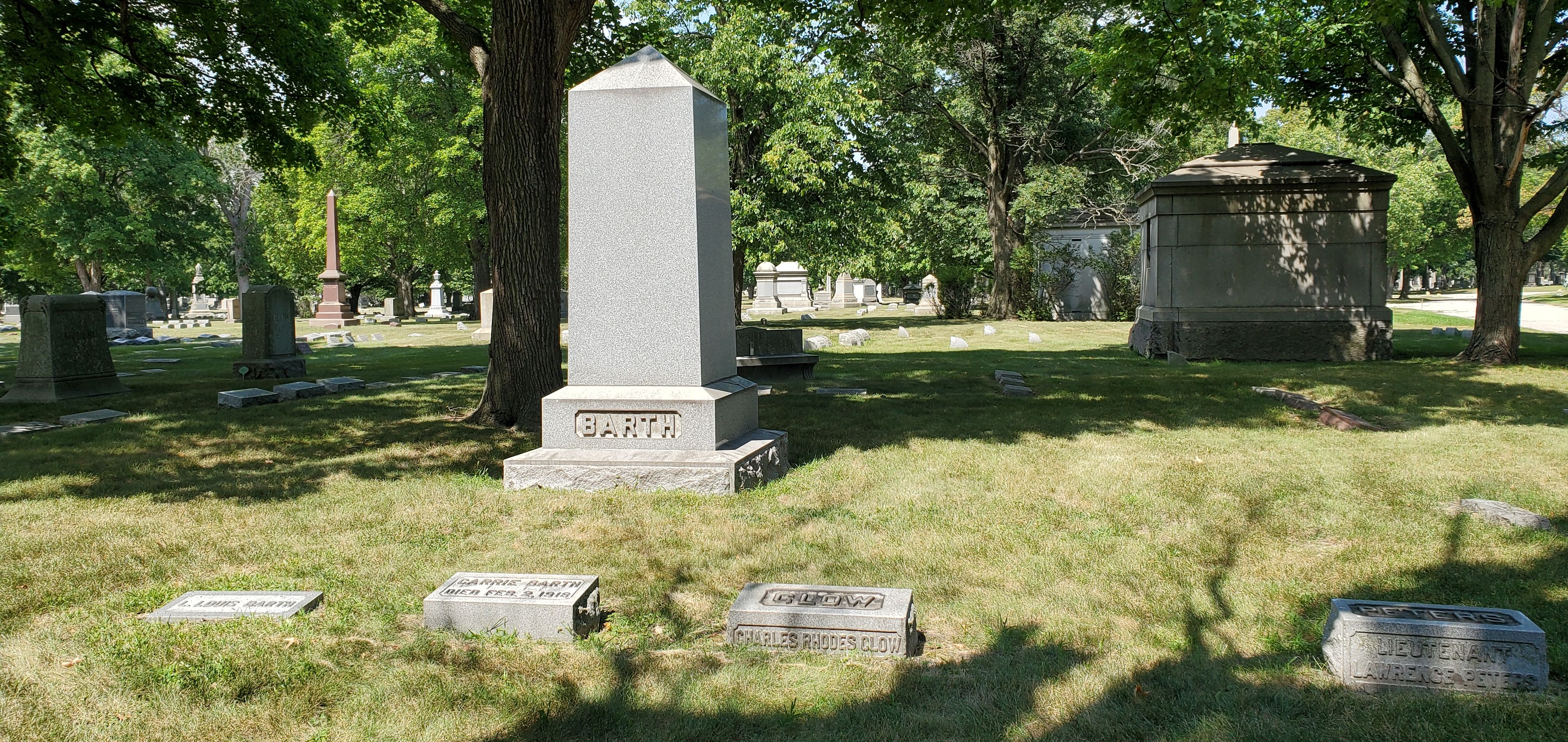Chicago Inter Ocean, Aug. 16, 1896, part 2, p.14, column 2: Fox Lake. Fox Lake, Ill., Aug. 15-- Mrs. Adams and daugther, Mabel, are entertaining Messrs. Franc Grannis, Walter Kimbark, and C.R. Clow of Chicago at the Bald Eagle, on the east shore.
Elkhart (Indiana) Daily Review, Aug 7, 1900, p.1: Charles R. Clow, just returned to Chicago from Alaska, reports the Klondike district as unusually rich, with fine prospects.
Birmingham (Alabama) Age-Herald, September 16, 1900, Section 2, p.15: FLOURISHING NEW GOLD FIELD
Room in Koyukuk for Thousands, But
They Should Take Money Along
From the Chicago Times-Herald.
Charles R. Clow, who has just returned from the Koyukuk district of Alaska, brings a flattering report of the conditions in the new gold fields. Notwithstanding that it has been but three years since gold seekers discovered that the Koyukuk was abundant with the precious ore, Mr. Clow says that a conservative estimate of the output for this year is from $1,000,000 to $1,500,000 for this year….
This is the first season that has brought paying results, a condition accounted for from the fact that it requires about three years to develop a new mining district to stage where it may be regarded as productive. Mr. Clow left Chicago about three years ago, becoming one of the early settlers of the Koyukuk district. He has watched its development with great interest, and believes that it will have a marvelous future.
Mr. Clow has several claims, but as they are yet undeveloped he cannot give an estimate of what they will yield him. Every claim thus far has brought splendid results, however, and it is a safe prediction that he will realize handsomely from his venture. Whether he will return to Alaska is a question which he was debating when seen yesterday at the home of his father, James B. Clow, at the Plaza.
"The Koyukuk is an immense district, and there is room for thousands of people," he said. "But a man has no business going in there without a good roll of money, for under no other circumstances can he expect to get returns. It is a mistaken idea that all one has to do is to walk in there and carry off the gold. It is not standing around in sacks with tags on them. A man needs about $1,000 in order to get through a winter. That amount will just about pay for his provisions, and it is possible that even a larger sum than this would be needed."
Here is the regulation bill of fare for the Koyukuk country, and anyone who contemplates moving there may do well to take note of its limitations as to price:
Flour…$8 per barrel
Sugar…25 cents per pound
Bacon…50 cents per pound
Rice…25 cents per pound
Oat meal… 25 cents per pound
Corn meal…15 cents per pound
All canned goods 75 cents per pound
Mr. Clow says that these prices closely conform to those of Dawson City. It is much more difficult to get provisions into the Koyukuk district than to Dawson City, but the consequent tendency toward a higher price is counteracted by the fact that no duty is placed upon the provisions for the Koyukuk.
"Myrtle Creek, Slate Creek and Gold Creek," continued Mr. Clow, "are the three streams where gold is found in paying quantities. When I left there were eighteen claims in operation on Myrtle creek, which is wonderful for a new mining country. Every one of them is yielding pay dirt from 50 cents to $1.90 a pan. A pan is an ordinary shovelful. That is marvelous when you consider that 6-cent dirt is considered rich. If there is much of that $1.90 brand those who are taking it out will not have to work long to accumulate a fortune. An ordinary shovel can take out 1,500 pans in ten hours. The dust... $18.10 an ounce, as against $14.50 for that secured at Dawson. This is a great difference—much greater than one might suppose, unless he did a little figuring.
"It is this difference in the value of the gold dust, together with its great abundance and the fact that the Koyukuk country is new, that is going to make that district the best of inducements. The rich claims are held by young men from New York, Massachusetts and the State of Washington. I believe that Boston is the best represented by holders of choice claims.
"Bettles is the name of the settlement in the district, and it is second to Dawson. There were about 500 settlers in the town when I left. The Alaska Commercial Company has a large store in Bettles, and that one concern will place in stock 709 tons of provisions for the winter. The Alaska Exploration Company of San Francisco and the North American Trading and Transportation Company will soon establish branch stores there. Bettles will be a good town within another year."
"Mr. Clow says that a peculiarity of the Koyukuk country is that the bed rock seems to be reversed. From the grass roots to a depth of three, four or five feet, pay dirt is obtained that is worth from 6 to 12 cents. Then there is a little streak of dirt that yields 30 cents. Then nothing is found through the gravel down to bed rock.
The cost of transportation from St. Michaels to Bettles is $200, which permits of taking 150 pounds of baggage, but no provisions. It is 900 miles from St. Michaels to the mouth of the Koyukuk river and 800 miles from there to the mines. With ordinary good luck the distance is covered in sixteen days.
Charles Rhodes Clow did not return to Alaska. He married in November 1900 to HATTIE B. BARTH (b. 1879 in California) and remained in Chicago.
The Book of Chicagoans: a Biographical Dictionary of Leading Living Men and Women of the City of Chicago (1905), ed. by J.W. Leonard and A.N. Marquis, page 127:
CLOW, CHARLES RHOADES, merchant, manufacturer; b. Pittsburgh, Pa., Mar. 22, 1864; s. James B. and Matilda (Ross) Clow; ed. public schools, Pittsburgh and Chicago until 1884; m. Chicago, Nov. 16, 1900, Hattie B. Barth. After leaving school in 1884 entered the business of James B. Clow & Sons, manufactgurers of water-works and plubers' supplies, and after serving the firm in subordinate capacities until he became familiar with the business was admitted to partnership, and upon the incorporation of the company became 2d vice-pres., which position still holds. Clubs: Union League, Chicago Athletic. Office: 342 Franklin St. Residence: 1092 Sheridan Rd.
Cook County, Illinois, Deaths Index, 1878-1922
Name: Charles Rhodes Clow
Birth Date: 22 Mar 1865
Birth Place: Pittsburg
Death Date: 7 May 1910
Death Place: Chicago, Cook, Illinois
Burial Date: 8 May 1910
Cemetery Name: Rose Hill
Death Age: 45
Occupation: Vice Pres-J. B. Clow &Son
Race: White
Marital Status: Married
Gender: Male
Residence: 23 Goethe St
Father Name: Jas B Clow
Father Birth Place: Pennsylvania
Mother Name: Matilda Ross
Mother Birth Place: Pennsylvania
FHL Film Number: 1239869
He left one son, Charles Rhodes Clow Jr. (born March 9, 1905 Chicago), age 5 in the 1910 census.
By 1920, he and his mother Hattie B. Barth Rhodes Peters, widowed a second time, had moved to Los Angeles.
1926 graduate, Sewanee University, Sigma Alpha Epsilon.
March 4, 1930: Charles Rhodes Clow (Jr.) and Linda Lee Doan married in Chicago.
April 11, 1930: New York Passenger Lists shows him with wife Linda Clow (born Jan. 12, 1905 Chicago) aboard the "Aquitania," from Cherbourg, France, with home address shown as "c/o Jas. B. Clow & Sons, Chicago, Ill."
Was he the Capt. Charles R. Clow who died Mar. 1, 1943 in WWII? Buried in Chattanooga, Tenn., National Cemetery. Hometown of record listed as Washington Co., Mississippi.
Chicago Inter Ocean, Aug. 16, 1896, part 2, p.14, column 2: Fox Lake. Fox Lake, Ill., Aug. 15-- Mrs. Adams and daugther, Mabel, are entertaining Messrs. Franc Grannis, Walter Kimbark, and C.R. Clow of Chicago at the Bald Eagle, on the east shore.
Elkhart (Indiana) Daily Review, Aug 7, 1900, p.1: Charles R. Clow, just returned to Chicago from Alaska, reports the Klondike district as unusually rich, with fine prospects.
Birmingham (Alabama) Age-Herald, September 16, 1900, Section 2, p.15: FLOURISHING NEW GOLD FIELD
Room in Koyukuk for Thousands, But
They Should Take Money Along
From the Chicago Times-Herald.
Charles R. Clow, who has just returned from the Koyukuk district of Alaska, brings a flattering report of the conditions in the new gold fields. Notwithstanding that it has been but three years since gold seekers discovered that the Koyukuk was abundant with the precious ore, Mr. Clow says that a conservative estimate of the output for this year is from $1,000,000 to $1,500,000 for this year….
This is the first season that has brought paying results, a condition accounted for from the fact that it requires about three years to develop a new mining district to stage where it may be regarded as productive. Mr. Clow left Chicago about three years ago, becoming one of the early settlers of the Koyukuk district. He has watched its development with great interest, and believes that it will have a marvelous future.
Mr. Clow has several claims, but as they are yet undeveloped he cannot give an estimate of what they will yield him. Every claim thus far has brought splendid results, however, and it is a safe prediction that he will realize handsomely from his venture. Whether he will return to Alaska is a question which he was debating when seen yesterday at the home of his father, James B. Clow, at the Plaza.
"The Koyukuk is an immense district, and there is room for thousands of people," he said. "But a man has no business going in there without a good roll of money, for under no other circumstances can he expect to get returns. It is a mistaken idea that all one has to do is to walk in there and carry off the gold. It is not standing around in sacks with tags on them. A man needs about $1,000 in order to get through a winter. That amount will just about pay for his provisions, and it is possible that even a larger sum than this would be needed."
Here is the regulation bill of fare for the Koyukuk country, and anyone who contemplates moving there may do well to take note of its limitations as to price:
Flour…$8 per barrel
Sugar…25 cents per pound
Bacon…50 cents per pound
Rice…25 cents per pound
Oat meal… 25 cents per pound
Corn meal…15 cents per pound
All canned goods 75 cents per pound
Mr. Clow says that these prices closely conform to those of Dawson City. It is much more difficult to get provisions into the Koyukuk district than to Dawson City, but the consequent tendency toward a higher price is counteracted by the fact that no duty is placed upon the provisions for the Koyukuk.
"Myrtle Creek, Slate Creek and Gold Creek," continued Mr. Clow, "are the three streams where gold is found in paying quantities. When I left there were eighteen claims in operation on Myrtle creek, which is wonderful for a new mining country. Every one of them is yielding pay dirt from 50 cents to $1.90 a pan. A pan is an ordinary shovelful. That is marvelous when you consider that 6-cent dirt is considered rich. If there is much of that $1.90 brand those who are taking it out will not have to work long to accumulate a fortune. An ordinary shovel can take out 1,500 pans in ten hours. The dust... $18.10 an ounce, as against $14.50 for that secured at Dawson. This is a great difference—much greater than one might suppose, unless he did a little figuring.
"It is this difference in the value of the gold dust, together with its great abundance and the fact that the Koyukuk country is new, that is going to make that district the best of inducements. The rich claims are held by young men from New York, Massachusetts and the State of Washington. I believe that Boston is the best represented by holders of choice claims.
"Bettles is the name of the settlement in the district, and it is second to Dawson. There were about 500 settlers in the town when I left. The Alaska Commercial Company has a large store in Bettles, and that one concern will place in stock 709 tons of provisions for the winter. The Alaska Exploration Company of San Francisco and the North American Trading and Transportation Company will soon establish branch stores there. Bettles will be a good town within another year."
"Mr. Clow says that a peculiarity of the Koyukuk country is that the bed rock seems to be reversed. From the grass roots to a depth of three, four or five feet, pay dirt is obtained that is worth from 6 to 12 cents. Then there is a little streak of dirt that yields 30 cents. Then nothing is found through the gravel down to bed rock.
The cost of transportation from St. Michaels to Bettles is $200, which permits of taking 150 pounds of baggage, but no provisions. It is 900 miles from St. Michaels to the mouth of the Koyukuk river and 800 miles from there to the mines. With ordinary good luck the distance is covered in sixteen days.
Charles Rhodes Clow did not return to Alaska. He married in November 1900 to HATTIE B. BARTH (b. 1879 in California) and remained in Chicago.
The Book of Chicagoans: a Biographical Dictionary of Leading Living Men and Women of the City of Chicago (1905), ed. by J.W. Leonard and A.N. Marquis, page 127:
CLOW, CHARLES RHOADES, merchant, manufacturer; b. Pittsburgh, Pa., Mar. 22, 1864; s. James B. and Matilda (Ross) Clow; ed. public schools, Pittsburgh and Chicago until 1884; m. Chicago, Nov. 16, 1900, Hattie B. Barth. After leaving school in 1884 entered the business of James B. Clow & Sons, manufactgurers of water-works and plubers' supplies, and after serving the firm in subordinate capacities until he became familiar with the business was admitted to partnership, and upon the incorporation of the company became 2d vice-pres., which position still holds. Clubs: Union League, Chicago Athletic. Office: 342 Franklin St. Residence: 1092 Sheridan Rd.
Cook County, Illinois, Deaths Index, 1878-1922
Name: Charles Rhodes Clow
Birth Date: 22 Mar 1865
Birth Place: Pittsburg
Death Date: 7 May 1910
Death Place: Chicago, Cook, Illinois
Burial Date: 8 May 1910
Cemetery Name: Rose Hill
Death Age: 45
Occupation: Vice Pres-J. B. Clow &Son
Race: White
Marital Status: Married
Gender: Male
Residence: 23 Goethe St
Father Name: Jas B Clow
Father Birth Place: Pennsylvania
Mother Name: Matilda Ross
Mother Birth Place: Pennsylvania
FHL Film Number: 1239869
He left one son, Charles Rhodes Clow Jr. (born March 9, 1905 Chicago), age 5 in the 1910 census.
By 1920, he and his mother Hattie B. Barth Rhodes Peters, widowed a second time, had moved to Los Angeles.
1926 graduate, Sewanee University, Sigma Alpha Epsilon.
March 4, 1930: Charles Rhodes Clow (Jr.) and Linda Lee Doan married in Chicago.
April 11, 1930: New York Passenger Lists shows him with wife Linda Clow (born Jan. 12, 1905 Chicago) aboard the "Aquitania," from Cherbourg, France, with home address shown as "c/o Jas. B. Clow & Sons, Chicago, Ill."
Was he the Capt. Charles R. Clow who died Mar. 1, 1943 in WWII? Buried in Chattanooga, Tenn., National Cemetery. Hometown of record listed as Washington Co., Mississippi.
Family Members
Sponsored by Ancestry
Advertisement
Explore more
Sponsored by Ancestry
Advertisement
